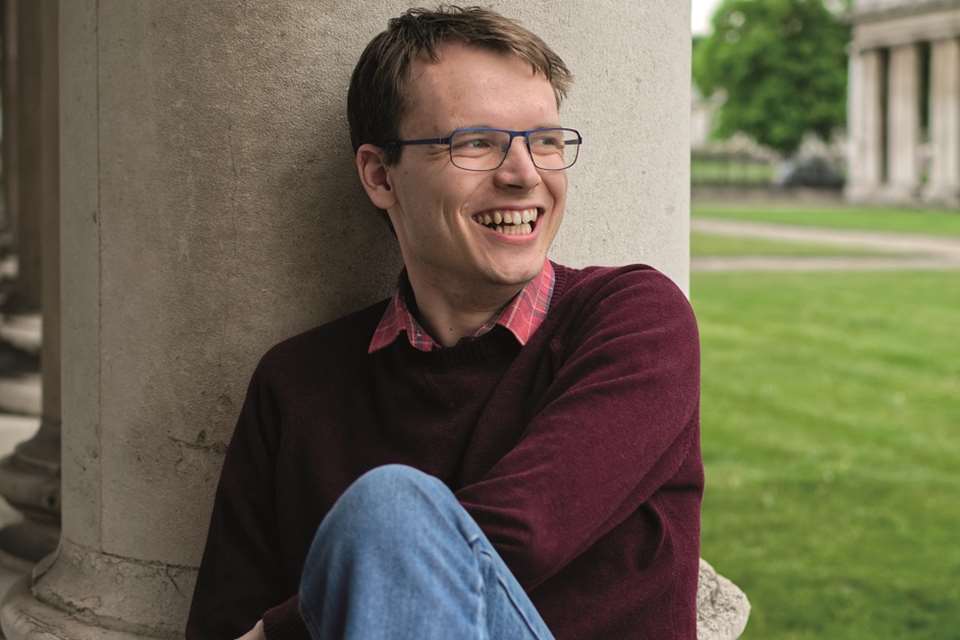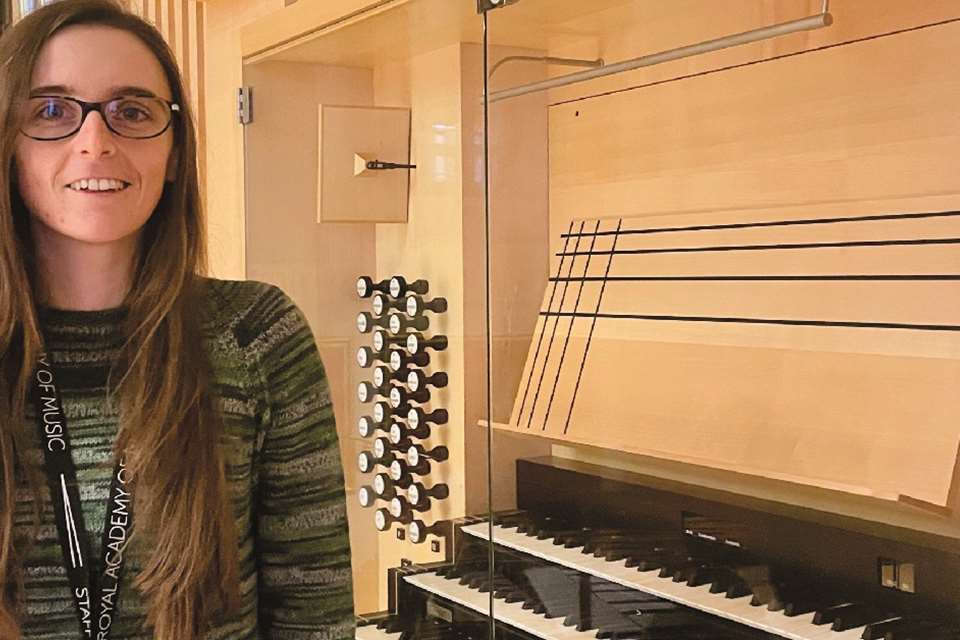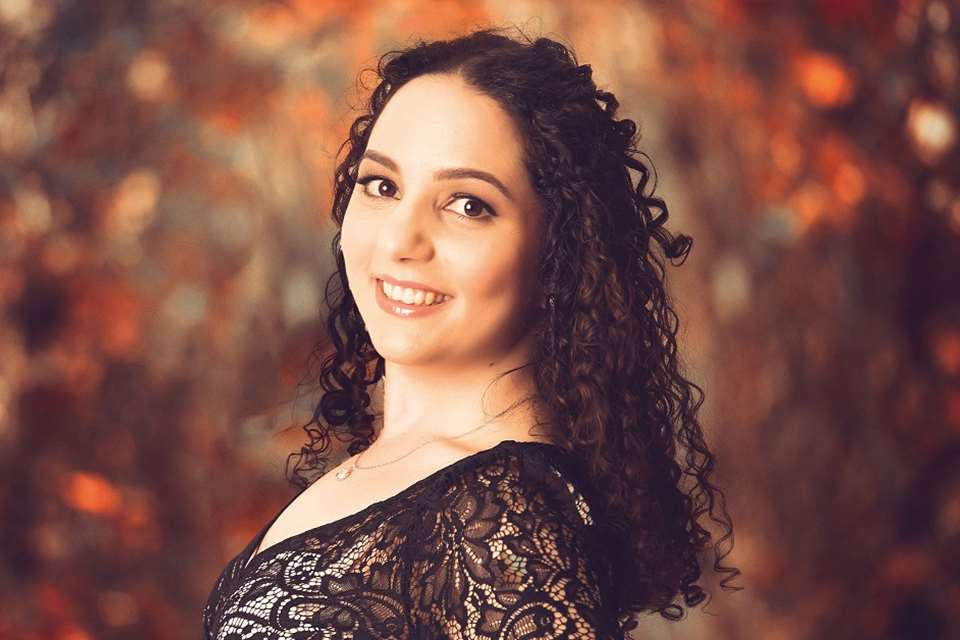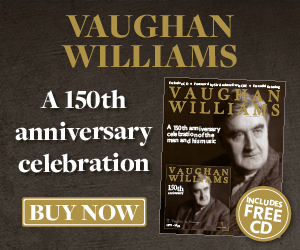James B. Wilson - Last Words Of Those Long Dead
Thursday, June 8, 2023
In his work for unaccompanied eight-part choir, James B. Wilson has set deathbed haiku by a range of poets to create a work evoking peaceful sleep. He talks to Matthew Power
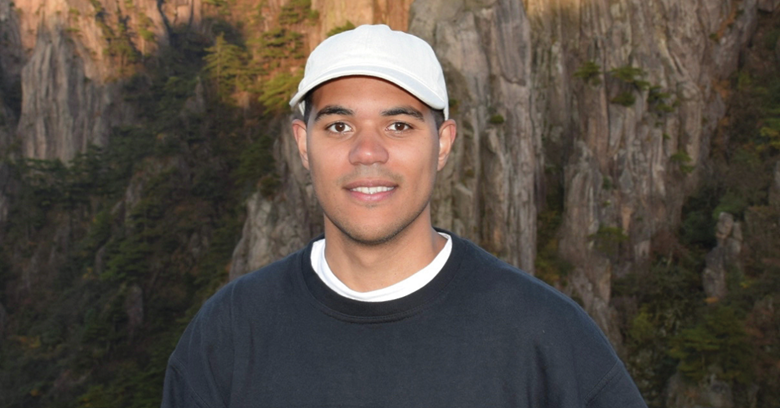
In the summer of 2022, James B. Wilson was looking forward to his biggest break as a composer, only to be disappointed. His five-minute orchestral piece 1922 celebrates the new era of broadcasting heralded by the BBC in its infancy. Due to premiere at the Last Night of the Proms in London’s Royal Albert Hall, the concert was respectfully cancelled owing to the death of HM Queen Elizabeth II. ‘It was awful,’ Wilson remembers. ‘We’d had the first rehearsal and I got to hear the music. There are things in that piece which I’d never attempted before, so I was taking a lot of risks.’ Happily, it is reprogrammed for the Last Night of this year’s Proms (9 September at 7pm). ‘It’s a fast piece – it starts at 160 beats a minute and doesn’t let up!’ Wilson is mindful of the recent and real threats to musical culture in the UK, highlighted by the BBC proposals recently: ‘We think of these things as perennial, long-lasting: the BBC orchestras and the BBC Singers. Now more than ever we can see that they are absolutely at risk.’
Wilson’s several high-profile commissions and competition successes are the more impressive considering that he won his scholarship to the Royal Academy of Music (RAM) before receiving any formal composition training. ‘It was a complete surprise, actually, because I didn’t come from a musical family. When I was 14 my parents bought a piano and you couldn’t separate me from the instrument! I was captivated by what it could do and create.’
Composition lessons at the RAM with tutors Gary Carpenter and David Sawer were supplemented with memorable tutorials from visiting professor Sir Peter Maxwell Davies. What does Wilson recall from those precious encounters? ‘Max was such a wonderful inspiration. He’s already a figure of history now.’ Although a formidable technician, it was Max’s talk of his Orkney home and of the ethos of becoming a composer which most resonated with Wilson. ‘That place infiltrated his work and he loved to bring the natural world into his music. I could listen to him talk for hours, he had so many experiences to share. Most of all, he gave me confidence. For him to believe in what I was doing, even at a young age, made such a big difference to me.’
Wilson was the first composer to be commissioned by the Chineke! Orchestra (founded in 2015 to be Europe’s first majority Black and ethnically diverse orchestra). His work Remnants reopened the Southbank Centre (SBC) in October 2020 after the pandemic. A starkly powerful statement following that year’s Black Lives Matter protests, the work combines a deeply affecting spoken-word polemic by the Nigerian British writer and poet Yomi Sode, uncovering the complex questions posed by Patrick Hutchinson’s rescue of a counter-protester, underpinned by highly expressive orchestral writing. How did this choice of subject emerge?
‘When Patrick Hutchinson saved a counter-protester who believed something totally different to him and put him on his shoulder, that image created a viral sensation. It happened outside the Southbank Centre, and this idea came from Gillian Moore [SBC artistic associate] and Chineke! founder Chi-chi Nwanoku.’ Wilson and Sode were both commissioned to collaborate on the work. How did they get on? ‘We were on the same wavelength from the start. He taught me so much because the narrative in the media was that the image was this kind of wonderful thing, showing incredible humanity and courage, which it was. But there was a very different feeling in the Black community that it was a silver lining to a very dark cloud, and that there were many more complex things going on that weren’t being interrogated. Yomi’s libretto really brings you into the world of what that image means. Music can get to the heart of the emotion that the words express and add a [warmth] to what could otherwise be quite a cold conversation. It was my job to create a musical dialogue with the words rather than an accompaniment. It was important to me that there was space for both of us to have a voice in the work.’
Listening to Wilson’s orchestral writing I feel a sense of tonal spaciousness, perhaps the influence of Aaron Copland’s frontier-evoking soundscapes. And then his Cheltenham Festival Composers’ Academy commission Lullaby (premiered back in 2015 by Genesis Sixteen) is less tonal, referencing slumber. ‘I am drawn to certain sonorities and harmonies. But almost every piece I write has one overarching idea which is often extra-musical. I feel like a storyteller, and once I have this big idea, I try to find the music that genuinely represents it. I like to find what makes a piece tick. Is it a really interesting, driving, rhythmic idea, or is it a harmonic plan, or a melodic idiom or a changing timbre? Sometimes you become like the midwife of your music rather than the creator, because you don’t have total control over it after a certain point.’
Wilson’s New Music piece, Last words of those long dead, is scored for eight-part choir and is more approachable than you might think. It is evocative of sleep, and in this case, of imminent and peaceful death. Each haiku is given a different musical subject – each is the last work of a poet, often collected from their deathbed – and the whole is underpinned by a chromatic, sustained four-note motto. Choirs might feel intimidated by its subtle tonality and brief introduction of quarter-tones, yet closer study reveals clear and helpful writing to make it naturally singable. There are obvious places to get your note from; it doesn’t go at a fast speed; there are no awkward intervals. ‘I did try to think carefully about the practicalities of actually singing this piece. Often there’s this kind of fanning effect of a melodic idea, like this opening four-note motif that each person is part of. Sonorities are built up in steps by each part stopping on a note while others continue to build. Once you see what is going on, it makes it easier to find your note.’ In each section there are repeated elements too, so structured rehearsal will enable singers to learn multiple passages.
In setting these ancient haiku (innovatively using AI technology in the form of ChatGPT to make translations), Wilson has given each a different musical subject. ‘These haiku are obviously very short and they express something really directly because of that. There is quite a complex emotional context too. The music should almost feel like you’re walking through doorways into different rooms of the same house… you’re in the same place, but you’re experiencing something quite new each time you move into [the next] room and there is a new ambient musical sonority.’
Does Wilson have a sense of what a composer in today’s world should be (or can be)? ‘It’s an important question, because more and more we’re having to justify why we exist as composers and musicians. Today, living with the TikTok generation, it’s up to us to be in dialogue with our surroundings and to catalyse conversations. I believe composers have a pastoral role in society, especially in a more godless world where people don’t have anything to believe in. There is an innate peace that we can find in music, in dialogue with one another. Music is part of who we are as individuals and as a society, and without it we’re not truly living.’
Download the score
The score for Last Words Of Those Long Dead, commissioned by Choir & Organ in partnership with the Choir of King’s College London and supported by PRS for Music, was available to download and perform until 31 December 2023. Visit our New Music section to see our latest scores.




